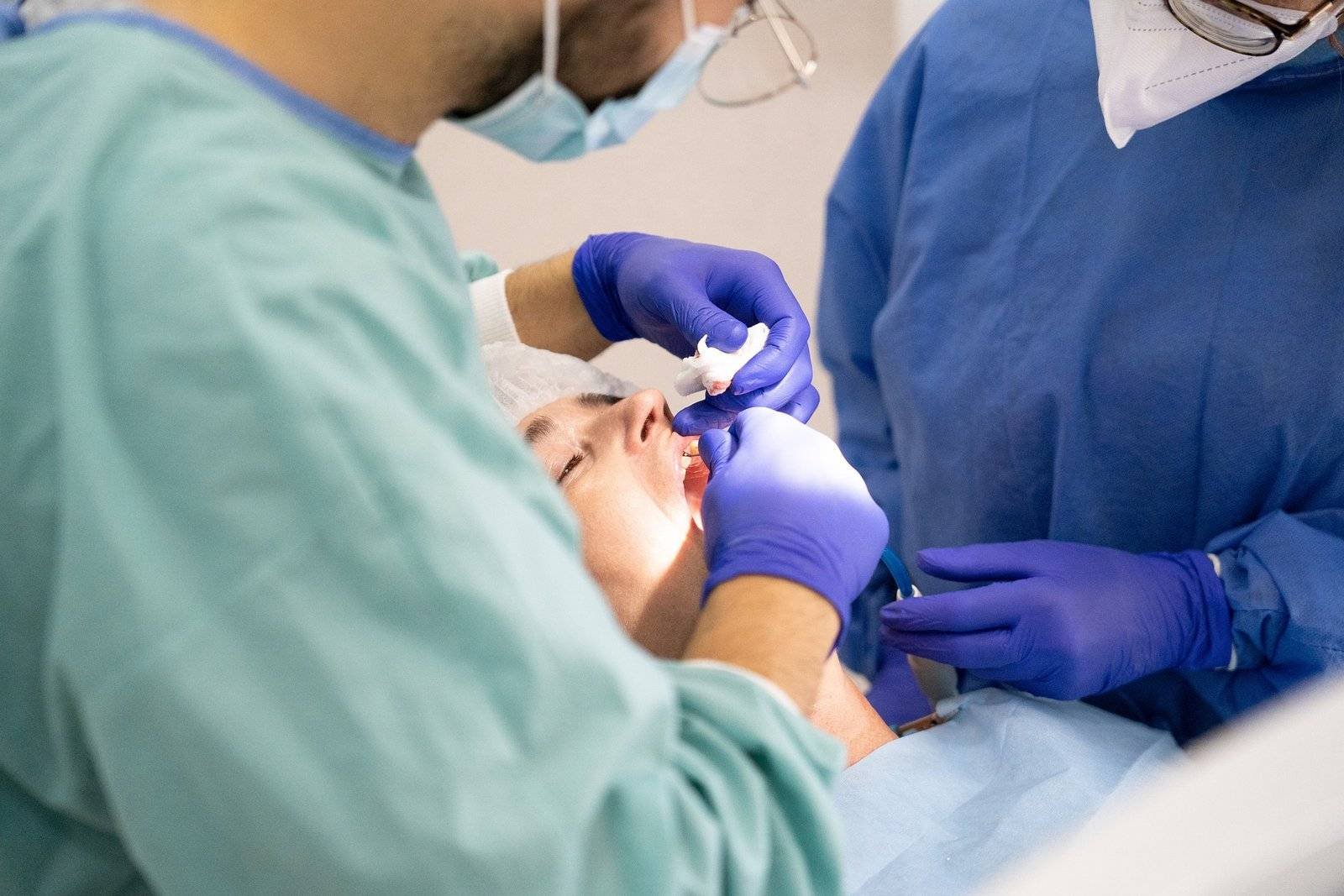
Introduction:
Teeth whitening procedures have become a popular cosmetic treatment, promising brighter, more radiant smiles. However, for some patients, the quest for a whiter smile may be hindered by the sensitivity that can accompany teeth whitening treatments. In this guide, we will explore the causes of sensitivity during teeth whitening procedures and provide comprehensive strategies for dental professionals to effectively manage and alleviate discomfort, ensuring a positive experience for patients.
Understanding the Causes of Sensitivity:
Before delving into management strategies, it’s crucial to understand why some individuals experience sensitivity during teeth whitening treatments. Tooth sensitivity often occurs when the peroxide-based whitening agents penetrate the enamel and come into contact with the dentin, irritating the nerve within the tooth. Contributing factors may include pre-existing tooth sensitivity, gingival recession, or aggressive whitening techniques.
Preoperative Assessment:
The journey to a brighter smile begins with a thorough preoperative assessment. Identify any pre-existing dental conditions, such as cavities, cracked teeth, or existing restorations, which may contribute to sensitivity. Evaluate the patient’s oral hygiene and gum health, as compromised gum tissues can exacerbate sensitivity. Addressing these factors prior to the whitening procedure can help minimize the risk of post-treatment sensitivity.
Choosing the Right Whitening Technique:
Selecting an appropriate whitening technique is pivotal in managing sensitivity. Consider offering a range of options, including in-office professional whitening and take-home kits. In-office treatments allow for precise control over the whitening process, while take-home kits provide a more gradual approach. Tailoring the approach to the patient’s needs and preferences can significantly impact sensitivity levels.
Customized Treatment Plans:
Every patient is unique, and so should be their whitening treatment plan. Customize treatment plans based on the individual’s oral health, sensitivity levels, and cosmetic goals. Adjust the concentration of whitening agents, duration of treatment, and frequency of application to strike the right balance between achieving optimal results and minimizing sensitivity.
Desensitizing Agents:
Incorporate desensitizing agents into the whitening procedure to alleviate sensitivity. Pre-treatment application of desensitizing agents containing ingredients like potassium nitrate or fluoride can help block pain signals and reduce nerve irritation. Additionally, post-treatment products such as desensitizing toothpaste or gels can be recommended to patients for at-home use.
Controlled Whitening Sessions:
For in-office treatments, consider breaking down the whitening process into controlled sessions. This approach allows for periodic assessment of sensitivity levels, enabling adjustments to the treatment plan as needed. Gradual exposure to whitening agents can help the teeth acclimate, minimizing the risk of heightened sensitivity.
Monitoring and Communication:
Open communication with patients is key to managing sensitivity issues. Clearly explain the potential for sensitivity during the treatment, set realistic expectations, and educate patients on post-whitening care. Establish a system for monitoring patient comfort during and after the procedure, and encourage patients to report any sensitivity promptly.
Postoperative Care:
Ensure that postoperative care includes recommendations for managing sensitivity. Advise patients to avoid hot or cold beverages immediately after the procedure, and provide guidelines for oral hygiene practices that minimize irritation. Follow up with patients to assess post-treatment sensitivity and address any lingering discomfort.
Alternative Whitening Solutions:
For patients with heightened sensitivity concerns, explore alternative whitening solutions that may be gentler on the teeth. This could include non-peroxide-based whitening options or procedures like microabrasion that remove surface stains without penetrating the dentin.
Conclusion:
Effectively managing sensitivity issues in teeth whitening procedures requires a thoughtful and individualized approach. By understanding the causes of sensitivity, conducting thorough preoperative assessments, choosing appropriate whitening techniques, utilizing desensitizing agents, and maintaining open communication with patients, dental professionals can enhance the overall whitening experience.
Remember, a beautiful smile shouldn’t come at the expense of comfort. With the right strategies in place, dental professionals can guide their patients to brighter, whiter smiles while minimizing the risk of sensitivity and ensuring a positive and satisfying outcome.
Muskan.ai – An ecosystem powered by Artificial Intelligence for dentistry.
Introducing Muskan.ai, a cutting-edge ecosystem driven by Artificial Intelligence tailored for the field of dentistry. Our innovative AI engine seamlessly integrates with a suite of AI products, empowering dentists to elevate their practice. Through this integration, dentists can optimize their workflow, save valuable time, and concurrently boost their revenue.
With our advanced AI-based radiography analysis tool, dentists can enhance patient treatment acceptance rates and obtain a valuable second opinion promptly. Our AI-powered oral hygiene checkups provide dentists with insights into a patient’s dental status, allowing for efficient time management and enabling the feasibility of tele-dentistry. Patients can conveniently connect with their dentists through a user-friendly mobile app.
Meet DAISY, our AI-powered dentalGPT, designed to interact naturally with patients, addressing their minor queries regarding dental health. In addition to these features, we are at the forefront of championing AI-based Oral Cancer Screenings, offering timely interventions and facilitating recovery without resorting to invasive treatments. Muskan.ai is not just a technological advancement; it’s a transformative force enhancing both dentistry practice and patient care.



